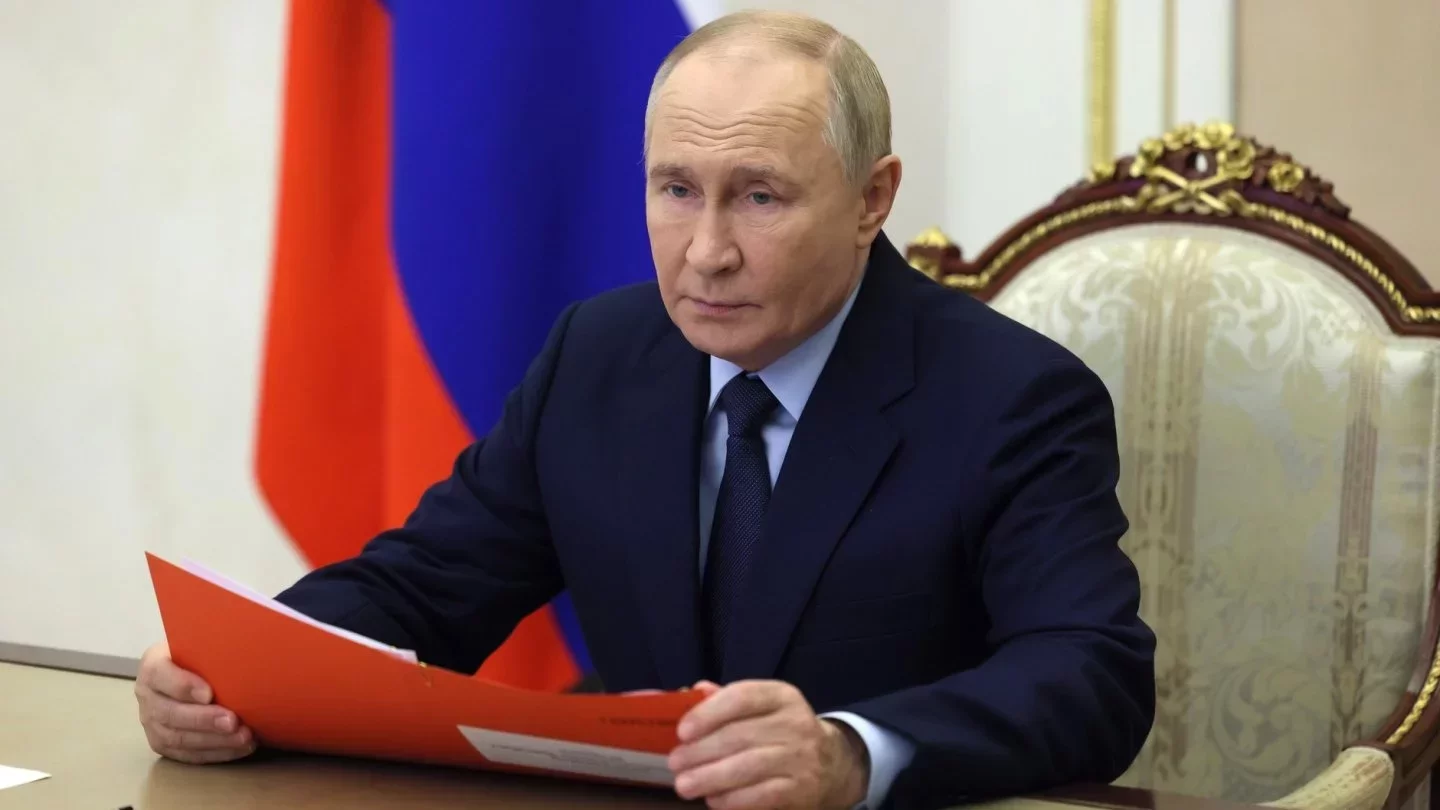Putin Approves Russia's New Nuclear Doctrine
 Photo: Kremlin.ru
Photo: Kremlin.ru
Russian President Vladimir Putin signed a decree approving new principles of state policy in nuclear deterrence, Orda.kz reports.
The updated Russian doctrine states that the state nuclear deterrence policy “is defensive in nature,” and the Russian Federation considers the use of nuclear warheads as an “extreme and forced measure” necessary to demonstrate the “inevitability of retaliation.”
Nuclear deterrence will be used against military blocs or alliances that view Russia as an adversary.
How broadly an alliance is to be interpreted and whether, for example, the interaction between Ukraine and NATO falls under this definition is not entirely clear.
Nuclear deterrence is also carried out in relation to states that provide the territory they control <...> and resources for the preparation and implementation of aggression against the Russian Federation, the document says.
An attack on the Russian Federation by one union member or bloc member will be interpreted as aggression by all members.
If a non-nuclear state shows aggression against the Russian Federation with the support or participation of an ally that has nuclear weapons, this will also be considered a joint attack.
Aggression against Belarus will also be perceived as a provocation against Russia.
According to the document, Russia could use nuclear deterrence to neutralize threats such as the “presence and deployment” of air defense systems, medium- and shorter-range cruise and ballistic missiles, high-precision non-nuclear and hypersonic weapons, and attack drones.
Blocking access to critical communications, possible attempts to destabilize environmentally hazardous facilities, and even large-scale military exercises near Russia’s borders are also indicated as such.
The doctrine specifies that Russia reserves the right to use nuclear weapons only in response to the use of weapons of mass destruction by the enemy.
Putin signed the new nuclear doctrine of the Russian Federation a day after it became known about the decision to allow Ukraine to use long-range ATACMS missiles to strike Russian territory.
In September, the Russian President said that he considered it necessary to expand the list of threats to which Russia could respond with such deterrence.
Original Author: Nikita Drobny
Latest news
- Kazakhstan Restricts Meat Imports From Russia’s Border Regions
- Crocus Attack and High-Profile Killings: Russian Media Say Pavel Durov Suspected of Aiding Terrorism
- Over 1 Billion Tenge to Be Spent on Caspian Sea Research
- Kashagan Shareholders to Challenge Kazakhstan’s $5 Billion Fine in Arbitration
- $180 Million Deal and More: Tokayev’s U.S. Trip in Review
- Avalanche on Titov Pass Kills Tourist Near Almaty
- Kazakhstan Counts Eligible Voters for Constitution Referendum
- Kazakhstan Bans «Indian Viagra»
- Are Russian Citizens Still Safe in Kazakhstan?
- Skier Buried by Avalanche Beneath Shymbulak Cable Car Line
- Tokayev Congratulates Saudi Leaders on Founding Day
- Undocumented Kazakhstanis in South Korea Can Leave Without Penalties Until Late February 2026
- Kalkaman Metro Station Construction Continues in Almaty
- Kazakh Peacekeepers on the Golan Heights Receive UN Medals
- Only Names Left: More Than 80 Villages Disappeared in Kazakhstan in a Year
- Environmental Safety to Be Added as Constitutional Principle
- Russian Fighter Jet Makes Emergency Landing in Atyrau
- Kazakhstan’s Banks See First Early-Year Profit Drop Since the Pandemic
- Cyclone to Bring Snow, Rain, and Blizzards to Kazakhstan
- Investments, Aviation and Healthcare: Tokayev Holds Series of Meetings With U.S. Company Chiefs in Washington

